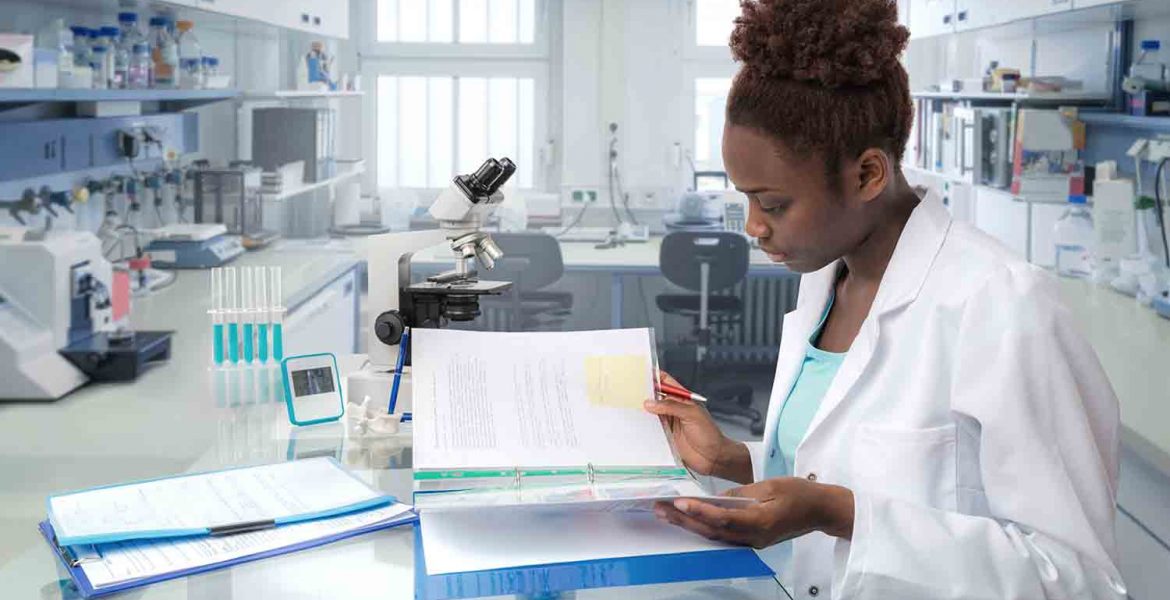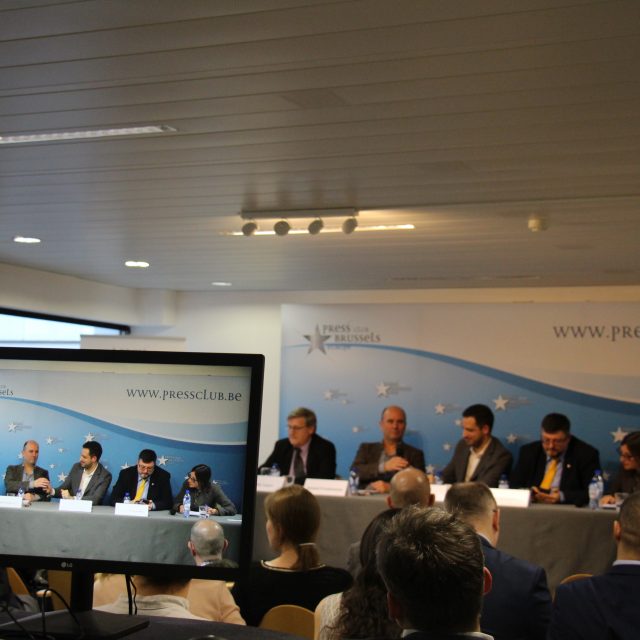The upcoming EU/Africa summit is a “great opportunity” to help promote gender equality in science, a conference heard.
The showpiece get together should ensure that more effort is put into encouraging women to enter the world of science, it was said.
The EU-AU Summit takes place in Brussels on 17-18 February 2022 under the French Council Presidency of the European Union (1 January -30 June).
Ahead of the summit, the Women’s Movements in African Science, Technology, and Innovation took part in a virtual conference with the aim being to give “more visibility” to different woman’s movements in the fields of science, technology, and innovation.
The event heard that a range of measures, including positive discrimination, should be deployed in order to get more women into the world of science. While positive discrimination is a sensitive issue this is was the only way of ensuring such ambitions are achieved.
The meeting’s recommendations will be sent to policymakers taking part in the summit early in the New Year.
Mirjana Povic, who moderated the event on Thursday, said, “This discussion has highlighted the importance of getting more women into science. The aim has to be to give more visibility to these issues and policymakers need to give us more support.
“It is inspiring to hear all the work being done in this field by so many associations and the EU/Africa summit is a good chance to give a voice to this issue. This is important.”
She added, “But we urgently need to involve all society in this. The lack of women in science is not just a problem for women but a problem for all society so we need everyone, men especially, to help bring more girls to science. Currently only 20 percent of our members are men so the question is how we reach the whole population to be more supportive.”
The conference explored how more can be done to support female researchers in Africa and to include more women in the decision-making process for science policies.
Organised the AERAP Africa-Europe Science Collaboration Platform, the virtual roundtable said science should be one the priorities for the EU-Africa summit.
The purpose of the meeting was to promote awareness of the contribution of collaborative research and development as a critical aspect of EU-Africa relations and collaborations while recognising the context of the United Nations Sustainable Development Goals.
Anissa Belfetmi, of the Algerian Women in Science group, said, “All of us are volunteers and give our time and energy free of charge and our group is free and accessible to all members.We strive to give equality of access to women who may not otherwise enjoy such access.”
She added, “Something that is lacking is that universities do not foster mentoring for girls who want a career in science so our universities should employ mentoring officers to tackle this. We have also noticed that many are more comfortable in group mentoring rather than one on one mentoring so we have tailored what we do to this.
We still have the image of science as the preserve for white males from western countries so we need more visibility for female African scientists. Currently, the feeling is that they are left on the side. We should also encourage the African diaspora to create a path for young women in science.”
Sabrina Absalon, from the same group and also a professor at the Indiana School of Medicine, said, “What is striking is the lack of role models for young women and also the fact that they don’t have strong visibility of their work. Female scientists also miss a sense of having a strong network and, sadly, they do not get a sense of the impact of their work in the industries where they work, be it in Africa or the rest of the world.”
Iroka Chidinma,co chair of the Women in Physics Group, noted, “Female scientists in Africa are currently under valued and under resourced and that is why we need ambition and motivation. There are relatively few women in science and women still feel that they should be seen and not heard.
“Women are considered as not being well endowed in this domain (science) and the challenges women face start early, in elementary school and college
“I was not given a chance to do anything in the school lab, for instance. It was only when I drew attention to this by crying that something was done about it.Some teachers are not sufficiently skilled in this area so this isolation is a big problem and a big challenge.”
She added, “Our strategy with the Women in Physics Group is to create networks to encourage more girls to study science, promote the subject and to allow women’s voice to be heard.This should all start in schools and colleges but there should be no disparities.”
Other speakers included Aretha Mare, who works in Africa to promote gender equality and foster collaboration. She said, “We fully support the recommendations made today.”
Mamta Pommier, of the Women in Astronomy group, told the meeting, “We need to bring people together and raise visibility. This is very important.”
AERAP is a response to the European Parliament Written Declaration 45 on Science Capacity Building in Africa, a call repeated by the Heads of State of the African Union. AERAP encourages policymakers to understand the need for an enabling policy and regulatory environment for science cooperation with Africa and championing leadership in Africa and Europe to demonstrate science’s contribution to society and address shared global challenges.
Other topics under discussion included the Neighbourhood, Development and International Cooperation Instrument, NDICI, also known as Global Europe.
This, it was said, needs to reflect the “enormous” potential of collaborative and inclusive science
There was also a call to accelerate an “inclusive approach to collaborative research, recognising Africa leadership and the untapped potential of women and girls to contribute to science and innovation.”
This needs to start with a more cohesive approach to policymaking and regulation.
The summit should also raise awareness of the “unforeseen and unintended” impact of EU regulations on potential research collaborations. These include data privacy, the General Data Protection Regulation, the In-vitro Diagnostics Regulation (IVDR), the Medical Devices Regulation (MDR) and the Clinical Trials Regulation.
African nations, it was said, need to build their enabling regulatory environment and pursue regulatory compliance with the EU.




